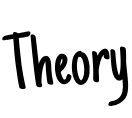|
|
|
|
The relationship between sociological perspective, methodology and methods; definitions of "science" and a "scientific ethos; the concept of methodology and its relationship to methods. |
|
|
The theoretical basis of sociological methodologies such as Positivism and Interpretivism; the difference between inductive and deductive positivism; the Hypothetico- |
|
|
The theoretical principles of Positivist, Interpretivist and Realist methodologies; The difference between reconstructed logics and logics- |
|
|
The idea that all observation is theory- |
|
|
Written by Jonathan Blundell, this examines a range of ideas, including positivism and interpretivism, relating to the question of whether or not sociology can be considered a science. |
|
|
Positivist, Realist, Interpretivist and Feminist forms of science, reliability and validity. |
|
|
Practical and theoretical research considerations; The "four- |
|
|
The concepts of reliability and validity. The concept of triangulation (methodological and theoretical). |
|
|
Definitions of value- |
|
|
This complete textbook chapter, taken from A2 Sociology for AQA, covers: 1. Concepts of modernity and postmodernity in relation to sociological theory – consensus, conflict, structural and social action theories. 2. The nature of ‘science’ and the extent to which sociology may be regarded as scientific. 3. The relationship between theory and methods. 4. Debates about subjectivity, objectivity and value- 5. The relationship between sociology and social policy. |
|
|
If you're looking for an easy way to introduce your students to Beck's concept of Risk Society, the Bad News is there probably isn't one. The Good News, however, is that this set of Notes might conceivably help. Plus, it has pictures, although whether or not that will make much difference is a moot point. |
|
|
Issue 1 (April 2022) of Sociology ShortCuts Magazine is devoted to an overview and explanation of Beck's concept of Risk Society. This is the pdf version and it's also available as an Online Flipbook (just like a Real Magazine but without the print that rubs off on your fingers). |
|
|
For some reason there's been a lot of stuff on Risk produced lately so to avoid confusion I thought I'd gather it all neatly together in one place for your enjoyment and sociological edification. |
|
|
Basic principles of Positivist, Realist and Interpretivist methodology. |
|
|
Reference chart applying concepts of Ontology, Epistemology, Methodology and Methods. |
|
|
Basic overview of Functionalist principles and general criticisms of this perspective. |
|
|
Basic overview of Marxist principles and general criticisms of this perspective. |
|
|
Basic overview of Weberian principles and general criticisms of this perspective. |
|
|
Basic overview of Interactionist Sociology, including basic principles and general criticisms. |
|
|
An introduction to the concept of theory; understanding sociological perspectives (Functionalism, Marxism, Interactionism, Feminism, Post- |
|
|
If you need a qucik'n'dirty overview of Giddens' Structuration perspective this brief set of Notes should do nicely. |
|
|
A- |
|
|
Revision notes that provide an overview of the basic principles involved in various different forms of Feminist thought (Liberal, Marxist, Socialist, Radical), general points of criticism in relation to each type of Feminism. |
|
|
Revision chart that provides an overview of the basic principles involved in various different forms of Feminist thought (Liberal, Marxist, Socialist, Radical, Black and Post- |
|

